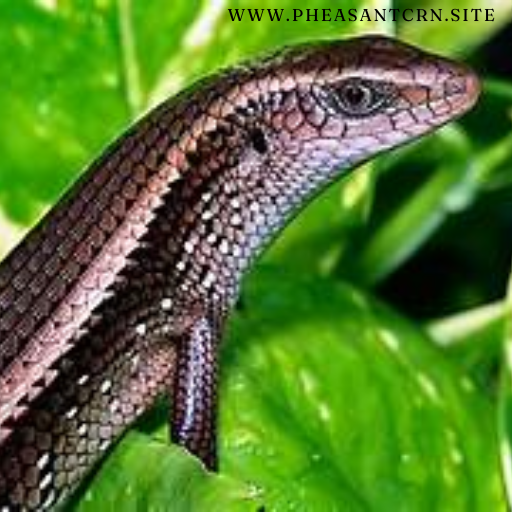Discover the key principles of feeding snakes to avoid malnutrition with our comprehensive guide.
Understanding the Nutritional Needs of Snakes
Snakes have specific nutritional needs that must be met in order for them to thrive in captivity. It is important for snake owners to understand the dietary requirements of their pets in order to provide them with a balanced and healthy diet.
Dietary Requirements
Snakes are carnivorous reptiles, meaning they primarily eat meat. Their diet in the wild consists of a variety of prey, including rodents, birds, and other small animals. In captivity, it is important to replicate this diet as closely as possible to ensure that snakes receive the nutrients they need to stay healthy.
Feeding Schedule
Snakes have different feeding schedules depending on their species and age. Young snakes typically require more frequent feedings, while adult snakes may only need to be fed once every few weeks. It is important for snake owners to research the specific feeding requirements of their snake’s species in order to establish a proper feeding schedule.
Prey Items
The prey items offered to snakes should be appropriately sized for the snake’s age and size. It is important to offer a variety of prey items to ensure that the snake receives a well-rounded diet. Some common prey items for snakes include mice, rats, and chicks.
Supplements
In some cases, snakes may require additional supplements to ensure that they receive all of the necessary vitamins and minerals. It is important to consult with a veterinarian or reptile specialist to determine if supplements are necessary for your snake’s diet.
Water
Proper hydration is essential for snakes, and access to clean, fresh water should always be available. Snakes may drink from a shallow dish or through soaking, depending on their species and individual preferences.
It is important for snake owners to do thorough research and consult with experts to ensure that they are meeting the nutritional needs of their pet snakes. Providing a balanced and varied diet is crucial for the health and well-being of captive snakes.
Tips for Properly Feeding Snakes
Feeding snakes can be a delicate process, and it’s important to ensure that they receive the proper nutrition to stay healthy. Here are some tips for properly feeding snakes:
1. Understanding the Snake’s Diet
Before feeding a snake, it’s important to understand their natural diet. Different species of snakes have different dietary needs, so it’s essential to research and understand what your specific snake species eats in the wild.
2. Choosing the Right Prey
Selecting the right prey for your snake is crucial. Prey should be appropriately sized for the snake, and it’s important to ensure that the prey is safe and healthy for consumption. Frozen prey can also be a good option, as it reduces the risk of parasites or diseases.
3. Feeding Schedule
Establishing a regular feeding schedule is important for the health of your snake. Young snakes may need to be fed more frequently, while adult snakes can be fed less often. It’s essential to monitor your snake’s body condition and adjust the feeding schedule as needed.
By following these tips, snake owners can ensure that their pets receive the proper nutrition and stay healthy. Always consult with a reptile veterinarian for specific dietary recommendations for your snake.
Preventing Malnutrition in Snakes
Snakes, like all animals, require a balanced and nutritious diet to maintain their health and well-being. Malnutrition in snakes can lead to a variety of health issues, including metabolic bone disease, organ failure, and a weakened immune system. To prevent malnutrition in snakes, it is important to ensure that they are provided with a diet that meets their specific nutritional needs.
Key Nutrients for Snakes
– Protein: Snakes require a diet high in protein to support their growth and muscle development. This can be obtained through feeding them a variety of prey items, such as mice, rats, and chicks.
– Calcium: Adequate calcium is essential for the development of strong bones and overall skeletal health in snakes. It is important to provide snakes with prey items that have been properly supplemented with calcium to prevent deficiencies.
– Vitamins and Minerals: Snakes also require a range of vitamins and minerals, including vitamin D3, to support their overall health and immune function. This can be achieved through offering a diverse diet and ensuring that prey items are nutritionally balanced.
Feeding Schedule and Variety
It is important to establish a regular feeding schedule for snakes, taking into account their age, size, and species-specific dietary requirements. Offering a variety of prey items, including rodents, birds, and even insects, can help ensure that snakes receive a well-rounded and balanced diet. Additionally, rotating prey items can prevent snakes from becoming selective eaters and help prevent nutritional deficiencies.
By paying close attention to the nutritional needs of snakes and providing them with a varied and balanced diet, snake owners can help prevent malnutrition and promote the overall health and well-being of their pets.
In conclusion, a balanced diet consisting of a variety of protein sources, fruits, and vegetables, along with proper hydration, is crucial for preventing malnutrition in snakes. Owners should also consult with a veterinarian for specific dietary recommendations based on their snake’s species and individual needs.



